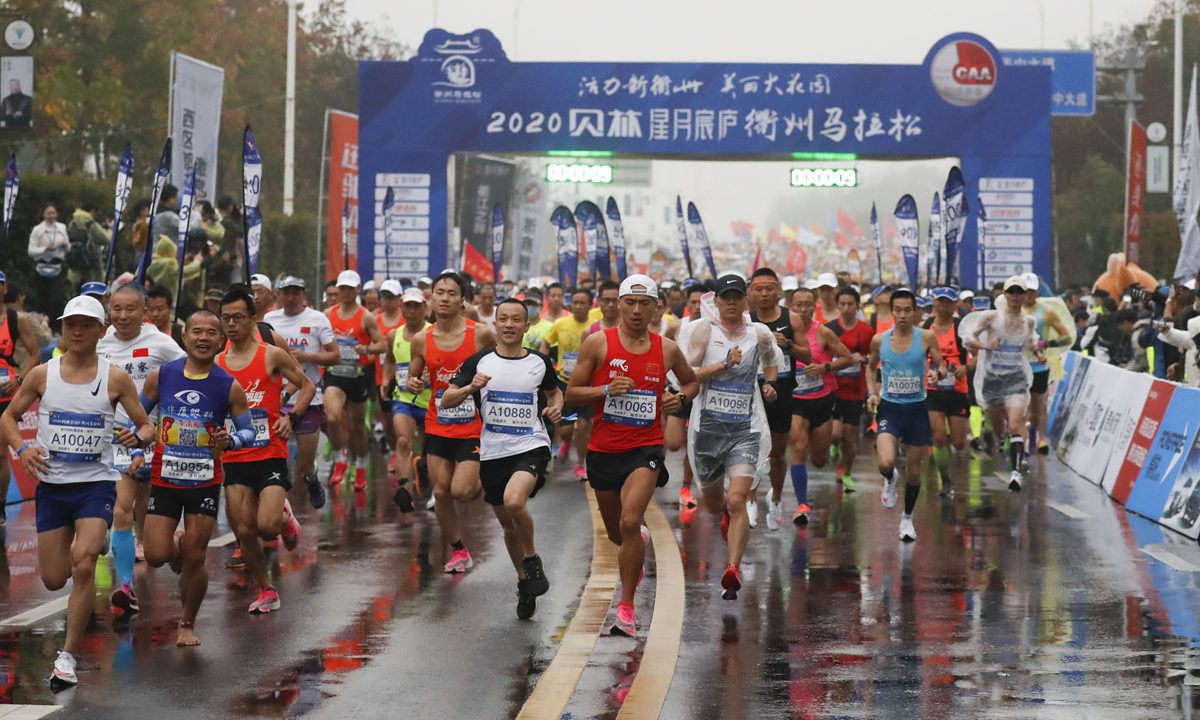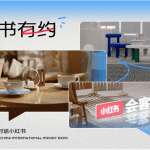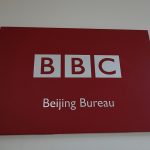China’s marathons ditch foreign brands amid Xinjiang cotton boycott
跑马季来袭马拉松因新疆棉花事件临时换赞助商跑友拒绝洋品牌

Several marathons in China’s major cities have abandoned foreign brands that had incited outrage on Chinese social media for their discriminating stance against Xinjiang’s cotton, including Adidas and ASICS.
The organizers have replaced the brands with local ones as the provider of the runners’ resources such as T-shirts, according to several sources familiar with the matter.
Shanghai Half Marathon, scheduled on Sunday, which had originally appointed Adidas as the provider of the players’ resources, told its players on Wednesday that there will be no costume issued at this event, a player told the Global Times on Friday.
The message was confirmed by Li, a staff from the organizer, Shanghai-based company Donghao Lansheng Group, but Li refused to elaborate on the reasons, adding that the incident has led several runners to quit.
The Global Times also learned from volunteers and players of the Xi’an Marathon, which is due on Saturday, that the organizer has replaced one of their brand partners ASICS with Xtep, a Chinese sportswear brand.
Emily, a Xi’an player, told the Global Times that, she received a mobile phone message from the organizer on April 4 saying that they are not able to provide the clothing for the race before the event as the materials provided by ASICS cannot be used any more.
A volunteer serving the Xi’an Marathon told the Global Times that their clothes are also from Xtep. ASICS was replaced as soon as the Xinjiang cotton issue surfaced, the volunteer said.
ASICS was also ditched by Wuxi Marathon, which was held in Wuxi of East China’s Jiangsu Province on April 11.
According to a statement released on its official account on April 1 by Hui Pao, a Chinese sports operating company and the organizer of the Wuxi marathon, has decided to terminate its cooperation with ASICS in the event, cancel its advertising rights and stop using all the materials and products of the brand.
Although none of the event organizers gave the specific reasons for replacing Adidas and ASICS, it is widely speculated that it’s due to the companies’ statements that they will not source cottons from Xinjiang.
Adidas has been subject to a wave of boycott in China after making statements discriminating cotton from Northwest China’s Xinjiang Uygur Autonomous Region. And the Japanese brand ASICS also enraged Chinese people for its double crossing moves on the issue.
“We will never tolerate the behaviors that hurt Chinese public feelings and offend the bottom line of our country,” Hui Pao said in a statement.
“Chinese people should have the backbone. Our domestic products now are as good as and even better than international brands, a Wuxi Marathon player, who asked not to be named, told the Global Times. “It is now the best time promoting a domestic sports brand.”
As China’s domestic brands catch up with the foreign brands in the Chinese market in terms of quality and marketing, they are emerging as stronger competitors to global brands and may eventually replace them as major sponsors, Zhang Qing, CEO of Key Solution Sports Co., a firm that consults the sports industry in China, told the Global Times.
“In selecting the sponsor for a public sports event, it is key to consider the brand’s reputation,” Zhang said. “When brands like Nike and Adidas have offended the public’s feeling, they are not likely to be chosen to represent the event.”
According to Zhang, while foreign brands are losing ground among Chinese consumers over controversies in Xinjiang, domestic brands have been gaining the market for improved quality and design.
For example, ANTA Sports, a Chinese sportswear brand, accounted for 15.4 percent of total market share in 2020, ranking third after Nike and Adidas. Out of the top 10 biggest sportswear companies, four are Chinese brands, including Li-Ning, Xtep and 361 Degree, Zhang said.








